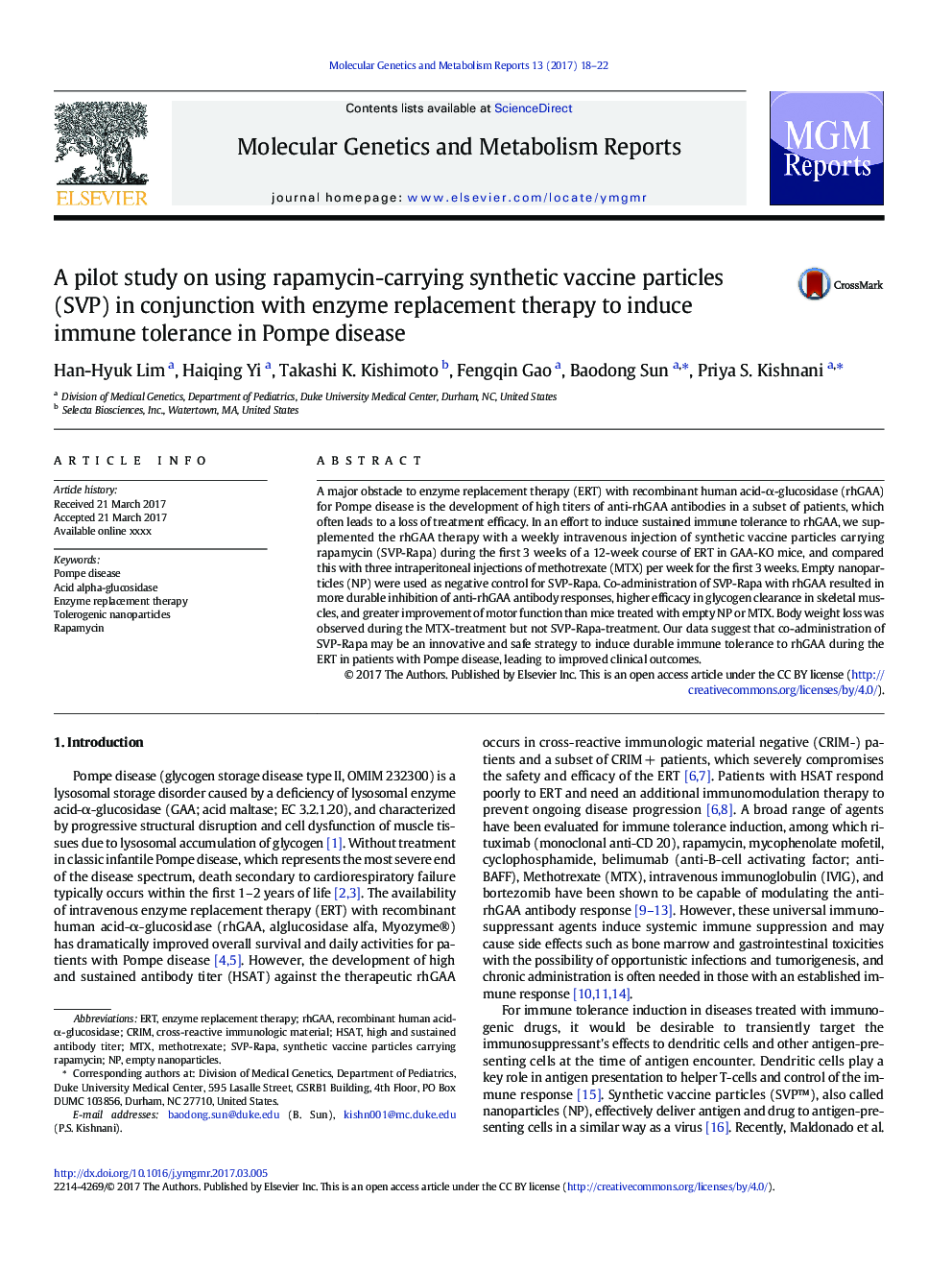| Article ID | Journal | Published Year | Pages | File Type |
|---|---|---|---|---|
| 5518494 | Molecular Genetics and Metabolism Reports | 2017 | 5 Pages |
â¢SVP-Rapa induced durable rhGAA-specific immune tolerance to ERT in GAA-KO mice.â¢SVP-Rapa co-treatment reduced muscle glycogen more efficiently than methotrexate.â¢SVP-Rapa significantly improved muscle strength and motor function by ERT.â¢This study suggests an innovative and safe immunomodulatory ERT for Pompe disease.
A major obstacle to enzyme replacement therapy (ERT) with recombinant human acid-α-glucosidase (rhGAA) for Pompe disease is the development of high titers of anti-rhGAA antibodies in a subset of patients, which often leads to a loss of treatment efficacy. In an effort to induce sustained immune tolerance to rhGAA, we supplemented the rhGAA therapy with a weekly intravenous injection of synthetic vaccine particles carrying rapamycin (SVP-Rapa) during the first 3 weeks of a 12-week course of ERT in GAA-KO mice, and compared this with three intraperitoneal injections of methotrexate (MTX) per week for the first 3 weeks. Empty nanoparticles (NP) were used as negative control for SVP-Rapa. Co-administration of SVP-Rapa with rhGAA resulted in more durable inhibition of anti-rhGAA antibody responses, higher efficacy in glycogen clearance in skeletal muscles, and greater improvement of motor function than mice treated with empty NP or MTX. Body weight loss was observed during the MTX-treatment but not SVP-Rapa-treatment. Our data suggest that co-administration of SVP-Rapa may be an innovative and safe strategy to induce durable immune tolerance to rhGAA during the ERT in patients with Pompe disease, leading to improved clinical outcomes.
